Are you scratching your head, puzzled and annoyed, just a day after giving your hair a good wash?
It's not just frustrating; it can be downright uncomfortable!
But don't worry; you're not alone in this itchy ordeal. Several sneaky culprits behind that annoying scalp itch that strikes soon after washing.
Various factors can leave you feeling itchy, from the products you use to unseen skin conditions.
In this guide, we'll explore 13 common reasons your scalp itches a day after washing and share effective treatments to soothe your scalp and keep the itch at bay.
Let's dive in and turn your scratchy days into smooth sailing!
Table of content
What causes an itchy scalp?
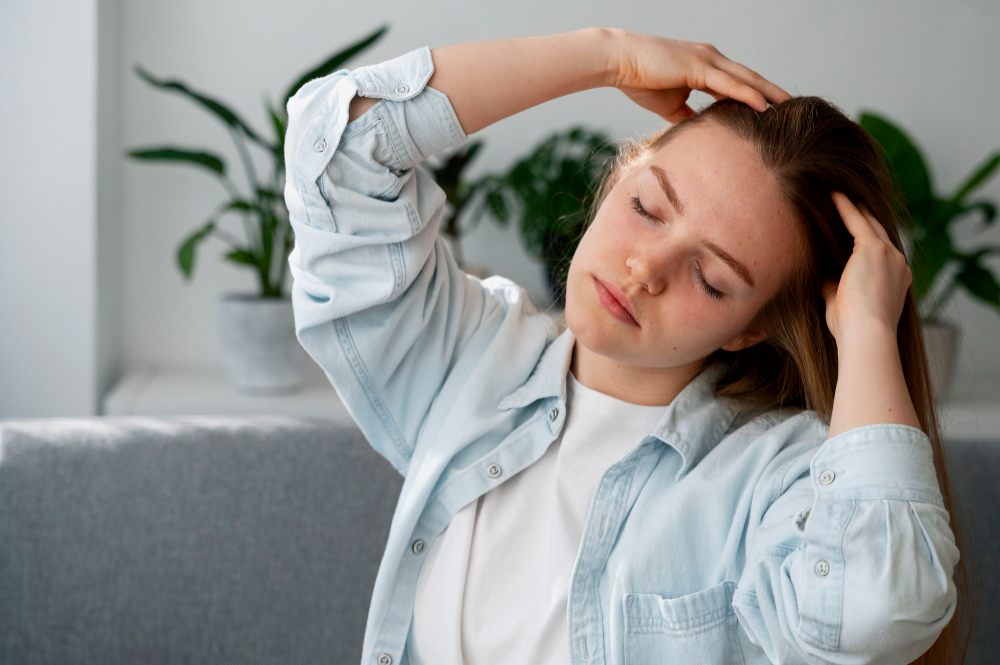
An itchy scalp can be caused by various factors, including skin conditions and lifestyle habits. Here are some common causes cause an itchy scalp:
- Dandruff: This common condition is characterized by white, flaky skin that falls from the scalp, often accompanied by itching. It can be caused by dry skin, sensitivity to hair products, or a yeast-like fungus called Malassezia.
- Dry skin: Similar to the rest of your body, your scalp can become dry and itchy, especially in cold, dry weather. This lack of moisture leads to flakiness and irritation.
- Product buildup: Using too many styling products or not thoroughly washing your hair can leave residue on your scalp, clog hair follicles, and cause itchiness and discomfort.
- Seborrheic dermatitis: This condition causes oily, red, and scaly skin. It's more severe than simple dandruff and can affect the scalp and other oily areas of the body.
- Scalp psoriasis: A chronic autoimmune condition that leads to the buildup of skin cells, forming thick, red patches with silvery scales. It's not only itchy but can also be quite painful.
- Contact dermatitis: This is an allergic reaction to something your scalp has come into contact with, such as a new shampoo, conditioner, or hair dye. Symptoms include redness, itching, and sometimes a rash.
- Fungal infections: Scalp ringworm, officially known as tinea capitis, is a fungal infection of the scalp that leads to round, scaly patches of hair loss and is highly itchy.
- Lice: These tiny parasites live on the scalp, feeding on blood and causing intense itching. They are most common in children and spread through close contact or sharing of personal items like hats or brushes.
- Stress: High stress levels can impact your body in many ways, including making your scalp itchy. Stress can also exacerbate conditions like dandruff and seborrheic dermatitis.
- Diet: A diet lacking essential nutrients, such as B vitamins, zinc, and healthy fats, can lead to poor scalp health, dryness, and itching.
As your leading source for hair health information over the past 4 years, we never compromise on accuracy. When it comes to your health, you deserve information you can truly rely on - and earning your trust is our top priority.
Here's how Scandinavian Biolabs ensures every piece of content meets the highest standards of accuracy and integrity:
- Credentialed Experts: Our reviewers are actively practicing doctors and medical researchers
- Stringent Reviews: Content undergoes rigorous editing by subject specialists and review by a practicing doctor.
- Evidence-Based: We rely on well-established research from trusted scientific sources like peer-reviewed journals and health authorities.
- Full Transparency: Our editorial standards, writer credentials, reviewer credentials, correction process, and funding are all publicly documented.
- Independent Voice: While we do promote products, we operate in a vacuum to business operations. Our main goal is just an unwavering commitment to providing medically-sound guidance.
You can count on Scandinavian Biolabs to consistently deliver the trustworthy health information you deserve. Read our Editorial Standards.
Why does my scalp itch a day after washing my hair?
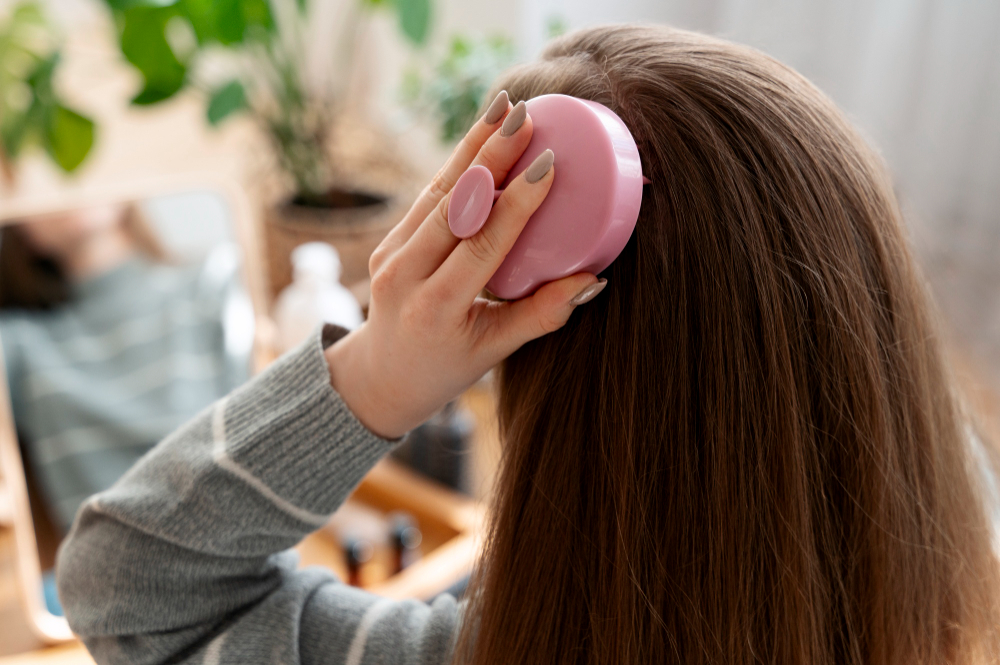
If your scalp starts itching just a day after washing your hair, it might leave you puzzled and seeking answers. This itchiness can be due to various reasons, from your products to underlying skin conditions.
Let's explore 13 detailed reasons behind your itchy scalp woes:
1. Overwashing
Washing your hair frequently can remove too much of the natural sebum, the oil your scalp produces to moisturize your skin. Without this natural barrier, your scalp can become dry and prone to itching due to the lack of moisture and protection.
2. Harsh shampoos
Shampoos containing sulfates, alcohols, and fragrances can be too harsh for sensitive scalps, stripping away natural oils and causing irritation or allergic reactions. This irritation can lead to itchiness as the scalp tries to recover its natural oil balance after washing.
3. Not rinsing well
Residual shampoo or conditioner left on the scalp can irritate the skin, causing itching. This residue can also attract dirt and oil flaky scalp, compounding the problem and leading to more itchiness and discomfort.
4. Product buildup
Styling products like gels, mousses, and sprays can accumulate on the scalp over time, especially if not thoroughly washed away. This buildup can block pores and irritate the scalp, resulting in itchiness and sometimes even dandruff.
5. Dandruff
Dandruff is often caused by an overgrowth of Malassezia yeast on the scalp, leading to skin cell overproduction, flaking, and itching. Washing can temporarily remove flakes, but itchiness can return without addressing the root cause as the yeast thrives.
6. Dry scalp
A dry scalp lacks adequate moisture, leading to tightness, flakiness, and itching. Factors contributing to dry scalp include washing with hot water, using drying hair products, and environmental conditions like low humidity.
7. Seborrheic dermatitis
This chronic condition is marked by oily, red, and scaly patches on the scalp. It can be worsened by stress, cold weather, and hormonal changes. The itchiness might be more noticeable after washing as the skin reacts to removing oils and potential irritants.
8. Contact dermatitis
Contact dermatitis occurs when the scalp reacts to allergens or irritants in hair care products, leading to redness, itching, and sometimes a burning sensation. Symptoms can flare up after using a new product or if a product is left on the scalp for too long.
9. Scalp psoriasis
Psoriasis leads to the rapid buildup of dead skin cells elsewhere, creating thick, red patches covered with white scales. These areas can be itchy and painful, and while washing may temporarily ease symptoms, the relief is often short-lived as the skin dries.
10. Fungal infections
Infections like ringworm cause scaly, itchy patches on the scalp. These areas may feel more irritated after washing, especially as the scalp dries and tightens, pulling on the affected skin.
11. Lice
Lice infestations are intensely itchy due to the allergic reaction to lice bites. Washing may temporarily disturb the lice, causing increased movement and subsequent itching as the scalp dries.
12. Reaction to hot water
Hot water can exacerbate scalp dryness and irritation by aggressively stripping away natural oils. The immediate aftermath can leave the scalp feeling tight, dry, and itchy as it reacts to the sudden change in temperature and moisture levels.
13: Stress
Stress impacts the body's immune system and can trigger or worsen skin conditions like dandruff, dermatitis, and psoriasis, leading to increased scalp itching.
After washing, the physical symptoms of these stress-related conditions can become more pronounced as the body reacts to both psychological and physical stimuli.
How do I stop my scalp from itching after shampooing?
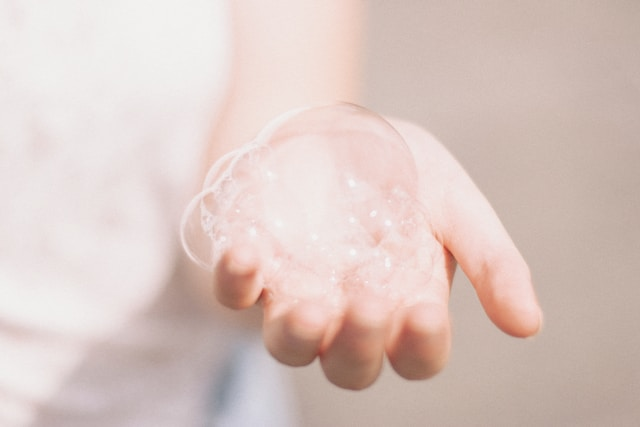
To prevent your scalp from itching after shampooing, switch to a gentle, sulfate-free shampoo and ensure you rinse your hair thoroughly.
Incorporate a scalp moisturizer or conditioner into your routine, especially products designed for sensitive skin or with natural, soothing ingredients like tea tree oil or aloe vera.
- Switch to gentle shampoo: Use medicated shampoos free from harsh chemicals like sulfates and parabens, which can irritate the scalp. Look for products labeled "for sensitive skin" or "natural."
- Thorough rinsing: Rinse your hair thoroughly after shampooing and conditioning to remove any product residue that can irritate the scalp.
- Moisturize your scalp: Apply a scalp-specific moisturizer or a lightweight, natural oil (like coconut or jojoba) to keep your scalp hydrated and prevent dryness.
- Use a scalp treatment: Consider using an over-the-counter scalp treatment designed to soothe itchiness or treat specific conditions, such as dandruff.
- Limit hair washing: Washing your hair less frequently can help preserve natural oils on your scalp, preventing dryness and irritation.
- Cool water rinse: Finish your shower with a cool water rinse to soothe the scalp and close the hair cuticles, locking in moisture.
- Avoid hot water: Hot water can strip your scalp of its natural oils, causing dryness and irritation. Use lukewarm water instead.
- Patch test new products: Before using a new hair care product, do a patch test to ensure you're not allergic to any ingredients.
- Diet and hydration: Maintain a balanced diet rich in vitamins and minerals and stay hydrated to support healthy skin and scalp.
- Manage stress: Since stress can exacerbate scalp issues, find stress management techniques that work for you, such as exercise, meditation, or hobbies.
Why does my scalp itch all day long?
Several factors can cause an all-day scalp itch, including dry skin, dandruff, seborrheic dermatitis, contact dermatitis from hair products, psoriasis, fungal infections, or a head lice itself. Identifying and treating the underlying issue—whether it's changing your hair care routine, using medicated treatments, or consulting a dermatologist—is crucial to finding relief.
Does your hair itch when it grows?
Hair growth itself doesn't typically cause itching. However, itching can occur due to other factors related to hair growth, such as the natural shedding process, irritation from hair follicles reactivating during the growth phase, or using certain hair growth products that may irritate the scalp.
When you notice itching as your hair grows, it could be due to a reaction to a hair for several reasons not directly related to the growth itself but rather to the conditions associated with it:
- Shedding and regrowth: As old hairs fall out and new hairs begin to grow, you might experience some irritation or sensitivity at the scalp, especially if you're sensitive to changes in your hair follicles.
- Hair growth products: Many products designed to stimulate hair growth contain ingredients like minoxidil, which can cause dry, itchy scalps in some people.
- Increased scalp sensitivity: When hair grows, your scalp might be more sensitive to products and environmental factors, leading to irritation and itchiness.
- Underlying scalp conditions: Conditions like seborrheic dermatitis or psoriasis might flare up during periods of active hair growth due to changes in the skin's surface and increased activity around the hair follicles.
- Hygiene factors: Sometimes, the itchiness associated with hair growth can be due to improper scalp hygiene or changes in your washing routine, leading to buildup or dryness.
How do you get relief from an itchy scalp?
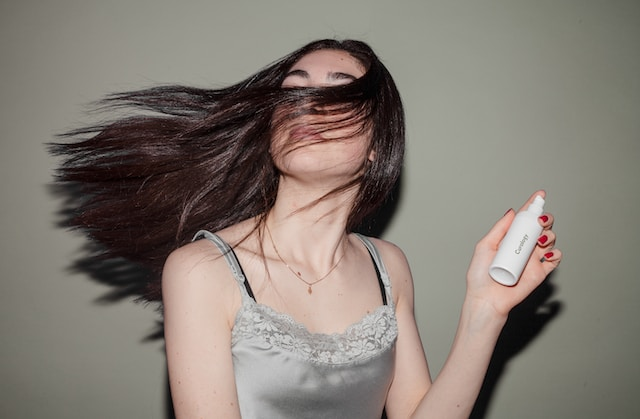
Identifying and treating the underlying cause is important to relieve an itchy scalp. Meanwhile, several general practices can help soothe itchiness and scalp buildup and promote scalp health:
- Use gentle, moisturizing shampoos: Look for shampoos designed for sensitive scalps, free from harsh chemicals.
- Hydrate and condition: Apply a nourishing conditioner or scalp moisturizer to help maintain moisture balance.
- Avoid hot showers: Hot water can further dry out your scalp. Use lukewarm water instead.
- Limit hair product use: Reduce styling products that can build up and irritate the scalp.
- Choose natural remedies: Consider natural oils like coconut, jojoba, or tea tree oil for their soothing properties.
- Change your diet: Ensure you get enough vitamins and minerals, such as omega-3 fatty acids, to support healthy skin.
- Stay hydrated: Drinking plenty of water helps to keep your skin, including your scalp, hydrated.
- Manage stress: Since stress can exacerbate scalp issues, find effective ways to relax and reduce stress.
- Consult a dermatologist: If home remedies don't provide relief, or if you suspect an underlying condition, seeking professional advice is important.
A better approach for your overall hair health
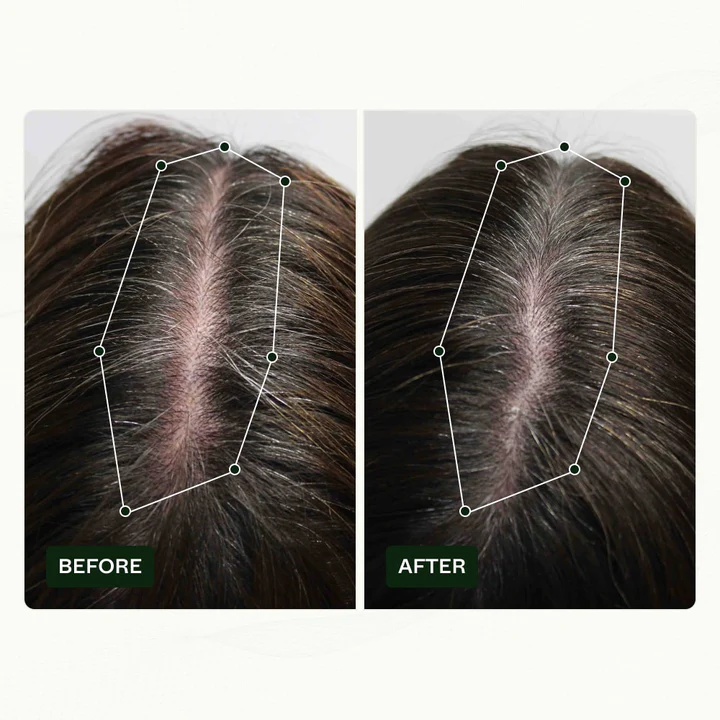
For those with an itchy scalp who seek a more natural approach to hair care and a healthy scalp biome, the Bio-Pilixin Hair Serum is an outstanding solution. This serum is designed for both men and women who prioritize natural ingredients in their hair care routine.
Bio-Pilixin Hair Serum is packed with plant-based components renowned for their scalp and hair health benefits, making it an ideal choice for individuals aiming to soothe an itchy scalp while enhancing hair thickness and vitality.
A standout ingredient in the formula is Capilia Longa, extracted from the stem cells of the turmeric plant, celebrated for its healing and anti-inflammatory properties that can alleviate scalp irritation.
The serum also boasts Niacinamide, or Vitamin B3, acclaimed for improving scalp circulation, potentially reducing scalp itchiness by nourishing hair follicles.
Another notable component is Vanillyl Butyl Ether, which promotes enhanced healthy scalp and blood flow, further supporting a healthy, itch-free scalp environment.
Recognizing the importance of customer satisfaction and the effectiveness of their product, the brand offers a 150-day money-back guarantee.
This policy underscores their commitment to quality and customer confidence, allowing individuals to explore the serum's benefits for their itchy scalp concerns without financial risk.
Conclusion
So, if you are wondering why does my scalp itch a day after washing, remember this: An itchy scalp can stem from various causes, such as dry skin, dandruff, and product buildup.
Addressing this discomfort requires identifying the underlying issue and adopting appropriate hair care practices. Bio-Pilixin Hair Serum offers a potent solution for those seeking a natural solution.
Its blend of plant-based ingredients like Capilia Longa, Niacinamide, and Vanillyl Butyl Ether aims to soothe the scalp, improve circulation, and enhance hair vitality, backed by a 150-day money-back guarantee for customer satisfaction.
FAQs
What are the common causes of an itchy scalp?
Common causes include dry skin, dandruff, seborrheic dermatitis, contact dermatitis, psoriasis, fungal infections, and harsh hair care products.
How can I soothe my itchy scalp naturally?
Natural remedies, such as gentle, moisturizing, and medicated shampoo, applying natural oils (e.g., coconut, jojoba, tea tree), and ensuring a balanced diet, can help soothe an itchy scalp.
Why does my scalp itch more after washing my hair?
This could be due to residues from hair care products, irritation from harsh chemicals in shampoos, overwashing, which strips the natural scalp oils, or too high water temperature.
Can changing my hair care routine improve scalp itchiness?
Yes, adopting a hair care routine and a homemade scalp oil treatment that avoids harsh chemicals, incorporates soothing ingredients, and addresses the specific needs of healthier hair on your scalp can significantly reduce itchiness.
References:
Read more:







